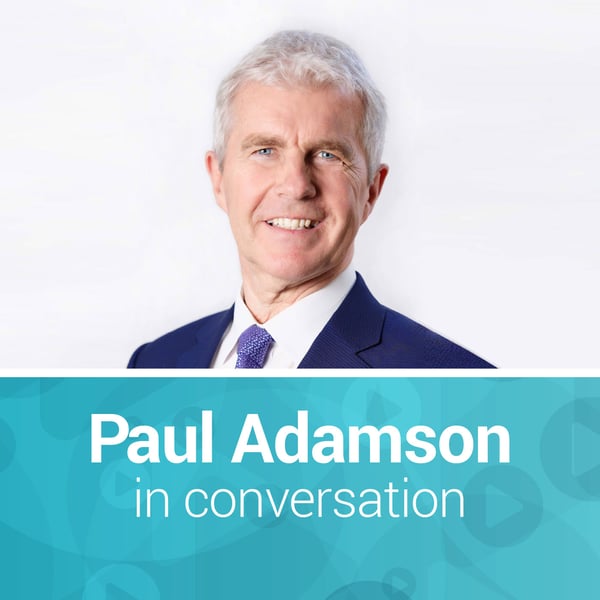Geopolitics in 2021
Paul Adamson in conversation
Paul Adamson
4.4 • 7 Ratings
🗓️ 7 January 2021
⏱️ 27 minutes
🧾️ Download transcript
Summary
Transcript
Click on a timestamp to play from that location
| 0:00.0 | This is Paul Adamson and welcome to In Conversation, the regular podcast of my online magazine InCompass. |
| 0:12.1 | I chat informally with personalities from a wide variety of backgrounds on a wide variety of subjects. |
| 0:17.8 | If you like this podcast, you can go to the magazine's website, Encompass-Europe.com, |
| 0:22.8 | or any of the main platforms for free access to all the podcasts to date. I hope you enjoy this |
| 0:27.9 | conversation. My guest is Charles Grant, the director of the Centre for European Perform, and I should point out that I'm a member of the advisory board of the CR. Welcome to the podcast, Charles. |
| 0:48.6 | Hi, Paul. Nice to be with you. We're going to talk about geopolitics 2021 and get your crystal ball out and give us some insights, please, about what you expect the year ahead to show us in terms of the broad geopolitical world. |
| 1:01.8 | We're going to try and cover as much of the world as possible the next half hour or so, but obviously we can't cover everything. |
| 1:07.0 | But I need, I cannot resist the temptation, but to start with, with Brexit, but not |
| 1:11.5 | on the usual trade aspect side that have been covered by many other commentators, including |
| 1:16.2 | many of your CR colleagues, but on the foreign policy side and why, in your opinion, did |
| 1:22.4 | the UK government, if one can believe what is being reported, did not want foreign policy broadly to be part of the Brexit talks. |
| 1:32.3 | Well, I regret that, Paul. I think that post-Brexit, one of the important things is that Britain stays fairly well closely aligned with its EU partners in dealing with global challenges and global issues. |
| 1:47.0 | We want very much Britain to be part of the West in the broadly defined, meaning the group of countries that stands up for liberal democracy and the rule of law against authoritarian countries and dictatorships. |
| 1:59.0 | And the British government decided not to have any structural |
| 2:03.1 | links at all to the EU on foreign policy. It's reason being, well, we don't have any |
| 2:08.8 | structural link to the US on foreign policy and we can still work with the US, which in a way |
| 2:13.0 | is fair enough, but I regret that. And I think that my own view is Britain is giving up a chance |
| 2:19.4 | to influence the EU. And to learn what's going on, we still will need to learn what's happening |
| 2:25.8 | in EU councils after Brexit. We're going to be pressing our face against the glass, looking |
| 2:30.0 | inside the room with much less good sources, much worse source of information than |
| 2:36.4 | we have today when we turn up, or we have until recently turned up at meetings. |
| 2:39.7 | So I think having some sort of structural links between the UK and the EU and foreign policy |
... |
Transcript will be available on the free plan in -1540 days. Upgrade to see the full transcript now.
Disclaimer: The podcast and artwork embedded on this page are from Paul Adamson, and are the property of its owner and not affiliated with or endorsed by Tapesearch.
Generated transcripts are the property of Paul Adamson and are distributed freely under the Fair Use doctrine. Transcripts generated by Tapesearch are not guaranteed to be accurate.
Copyright © Tapesearch 2025.

